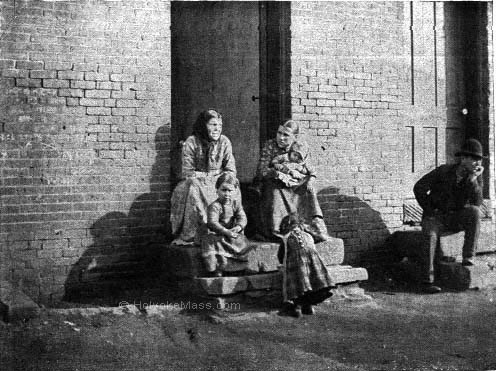Of course he could have easily driven a few steps farther with those creatures who were to the man a great help in saving time and strength (and money too, for it was tobacco he was cultivating, and tobacco is a valuable crop). It would have taken but a minute to lower their check-reins, and to let them share the shade he enjoyed,—but why should he take thought for a horse? The horse is intelligent enough to do man’s work, to learn obedience, patience, gentleness under ill-usage, and to exert himself to the utmost to serve his master, but he is not intelligent enough to scream or to groan, to revenge himself upon the owner that abuses him; and above all, he cannot appeal to the law for protection. Although he suffers, he is dumb. Like the slave, he is man—s property; and man respects the rights of others only when the law obliges him.
We human beings so seldom take the trouble to justify our dealings with animals that most of us would be shocked and perhaps we would all resent the word that describes the real reason we are so thoughtless, so careless, and oftentimes so cruel to the horse, the dog, the dumb creatures in our possession. And yet, at the bottom we must know it is due to cowardice. If the animals replied to illtreatment with fangs or claws like the snake or bear, a man might slay, but he would hardly abuse or underfeed so dangerous a creature. It is only when man feel safe from harm he ceases to control his passions. While he knows his horse will not trample underfoot, his dog will not tear him limb from limb; in short, so long as man is not personally afraid, he feels free to treat his animals according to his disposition and degree of enlightenment.

Glasgow Block Doorways.
|
If he regards his horse as a machine that he has bought and even owns, he will waste no thought on the comfort of the beast, he will check his head so high that the beautiful, natural arch of the neck is stretched to an ugly straight line, till the nose sticks out like a pointer dog’s (when there is no game to point at, except his master, who prudently sits behind him!): he will not bother to water him, "because it is too much trouble" to get out and lower that same foolish strap; he will forget to corn him in winter; he will fasten him on a windy corner in cold weather, or a sunny on in warm, to save himself the exertion of looking out for a suitable place, as he would for a fellow mortal; he will jerk him and saw his mouth viciously when the horse is frightened (frequently by a noise, whose cause he cannot see, because his master has put black shutters over half his eyes); he will overload, and overdrive; and while forgetting to praise his horse for welldoing, will always remember to punish him for stupidity or laziness (his master being a pattern of quickness and industry).
All this he will do from a mixture of petty cowardice and thoughtlessness. The bully can only be taught through public opinion, and this is too seldom expressed; for the same small fear of consequences closes the mouths of many men and women who regret wrongs done, but lack the courage to protest against them. As to the habit of thoughtlessness, the excuse, "I didn’t think," is nothing but an ironic self-accusation; only the underwitted are incapable of taking thought. So long as man is able to realize his own sensations of cold, heat, hunger, fatigue, pain and grief, he is equally able to understand the fact that all living creatures, in greater or less degree, suffer in like manner. There is no excuse for thoughtlessness, nor for cowardice.
|